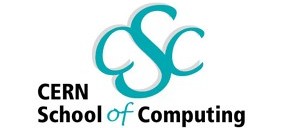|
Print Version
|
CSC2007 Examination Results
2007 Examination: Best marks
|
|
2007 Examination: facts and figures
|
2007 |
|
Students having
participated in the examination |
70
students (out of a total
of 79 ) registered in the final examination, that is 89% of the
students attending the school. |
|
Questions |
34
multiple choice questions were proposed.
Question 9 was
invalidated by the jury after deliberation, and not taken into
account. Therefore, 33 questions were considered for the results. |
|
Pass / No-Pass
threshold |
To be declared
as having successfully passed the examination, the student must have
replied correctly to
more
than 50%
of the
retained questions. |
|
Number of
correct answers for successful pass |
As
33 questions
were retained, any student having replied correctly to
17
or more than 17
questions will
be declared as having successfully passed the CSC2007 examination |
|
Proportion of
success |
64
students succeeded in the examination. |
|
Rewards |
-
Certificates of credit
will be handed over to the students at the occasion of the closing session Friday
31st of August.
-
The students with the
highest marks will be announced
at the closing session Friday 31st of August.
|
|
Marks |
Individual marks will be available on demand,
after the closing
session only, from Wisla Carena (Wisla.Carena
AT cern.ch).
|
|
|
|
|
2007 Examination: List of successful students
|
The CSC2007 Jury is pleased to warmly congratulate the following
students who have successfully passed the 2007 examination.
|
|
All the students
below have successfully passed the
examination.
We congratulate them! |
| Baehr, Manuel |
| Baquero Ruiz, Marcelo |
| Barandela Pazos, Maria del Carmen |
| Batista Neto, Teresa Manuela |
| Battaglia, Andreas |
| Battilana, Carlo |
| Bergauer, Thomas |
| Boelaert, Nele |
| Budzowski, Michal |
| Caffaro, Jerome |
| Chibante Barroso, Vasco |
| Christadler, Iris |
| Ciobirca, Costin Catalin |
| Dana Perez, Jose Miguel |
| Dargaud, Guillaume |
| Delgado Peris, Antonio |
| Demirkoz, Bilge |
| Dini, Lorenzo |
| Ehm, Felix |
| Fanzago, Federica |
| Fella, Armando |
| Godinho, Ricardo |
| Huang, Hui-Tzu |
| Imamagic, Emir |
| Ji, Weina |
| Kokoszka, Tomasz |
| Kral, Jiri |
| Lechner, Anton |
| Liao, ShuTing |
| Loddenkoetter, Thomas |
| Maier, Gerhild |
| Marcos, Diego |
| Mhashilkar, Parag |
| Miszczak, Jaroslaw |
| Morovic, Srecko |
| Muecke, Manfred |
| Nowak, Andrzej |
| Olivier, Bob |
| Pagano, Alfredo |
| Pintaric, Senka |
| Polese, Giovanni |
| Polic, Dunja |
| Rossi, Biagio |
| Shah, Syed Yousaf |
| Shi, Jingyan |
| Sierra, Rodrigo |
| Singhal, Vikas |
| Skowronski, Piotr |
| Stanecki, Zbigniew |
| Stanislawek, Karol |
| Stoica, Radu Ioan |
| Svendsen, Katrine Aam |
| Topurov, Anton |
| Tronconi, Cristina |
| Veronesi, Paolo |
| Vitlacil, Dejan |
| von Haller, Barthelemy |
| Wawrzyniak, Karol |
| Weise, Andrea |
| Williams, Jennifer |
| Wojcik, Dawid |
| Wren, Adam |
| Yousif Al-Eshaiker, Sama |
| Zynovyev, Mykhaylo |
|
2007 Podium: Pictures and Bio
1st Mark
2007 |
|
Antonio DELGADO PERIS |
CIEMAT, Madrid - Spain |
|
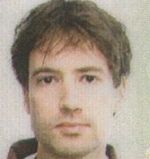 |
My duties
include the administration of the institution's Grid resource Center for
WLCG and EGEE (CIEMAT-LCG2). As such, I participate in the operation of the
site's Grid services, and the planning and deployment of new services or
upgrade of the existing ones. I also collaborate with colleagues at PIC Grid
site, and give support to the Grid users at CIEMAT. In addition to this, I
participate in the development of Grid software for CMS. In particular, I
have developed the API of one of the CMS' file catalogs; namely, the CMS'
Data Location Service. Of course, I also give support to the users of this
catalog.
|
|
2nd Mark
2007 |
|
Thomas LODDENKOETTER |
Bonn University - Germany |
|
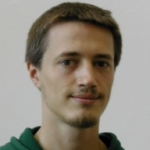 |
I am working
on the alignment of the forward tracking components of the ZEUS detector at
HERA. By the time the CSC takes place I will have joined the ATLAS tracking
group for my PHD studies. Furthermore I administer the computer cluster of
the ZEUS Bonn group, which is a Linux cluster consisting of 18 workstations,
one server and one webserver. In the near future I am also going to
participate in the computer administration of the Bonn ATLAS group. |
|
3rd Mark
2007 |
|
Marcelo
BAQUERO RUIZ |
Universidad de Los Andes, Bogota
-
Colombia |
|
I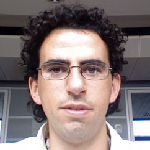 |
I am currently working as
a Data-Production Operator and as a Software Distribution Provider at CERN
(as part of the CMS collaboration). My role focuses on producing Monte Carlo
data, making sure that it is saved where it is supposed to be, and running
validations for the different CMS Software releases. I am also working with
the "JobRobot", a program that sends large amounts of jobs over the GRID for
checking the availability of the different sites for processing data. So, I
am an "extensive" GRID user: that's the reason why I am so very interested
in learning more about it. I have experience with both Windows and Linux
operating systems. All my work at CERN involves Linux, so I am probably more
familiar with it.
|
|
3rd Mark
2007 |
|
Carlo BATTILANA |
Universit? degli studi di Bologna - Italy |
|
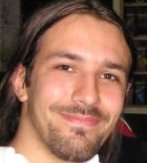 |
I am involved in the
development of the Drift Tubes Trigger Primitives Emulator under the CMS
software framework (CMSSW) and of the DT Local Trigger Data Quality Monitor
(under the same framework) as part of the whole DT Trigger Primitives
Infrastructure. Both the mentioned tasks foresee the knowledge of C++, XML,
Linux and of the Root framework.
|
|
3rd Mark
2007 |
|
Iris CHRISTADLER |
Leibniz Supercomputing Centre - Germany |
|
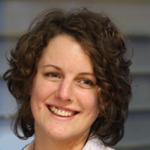 |
I am a
member of the grid and the user support teams at LRZ. We operate a 9728 core
SGI Altix 4700 and a heterogeneous Linux-Cluster with 800 cores. Together
with the MPG a cluster with 800 cores and 350 TB disc space is part of LCG
as a Tier-2 Center. In addition to LCG, LRZ is also a member of the DEISA/eDEISA
grid infrastructure. My work involves porting of applications to different
platforms, optimization, debugging and grid enablement, which is currently
limited to DEISA but should be expanded to LCG as well.
|
|
3rd Mark
2007 |
|
Jiri KRAL |
Czech Technical University, Praha ? Czech Republic |
|
 |
I am a
student (5th year) of experimental physics (heavy ion/high energy), recently
employed (80%) by the department as an IT support for physical computing. My
task is to build a cluster computer to be used mainly for ALICE data
processing (in cooperation with CAS FZU Tier-2 Center in Prague). My CERN
activity is to supervise and develop a part of Detector Control System for
SDD detectors of ALICE. The work ranges from simple custom hardware design
for front-end, FPGA programming, writing kernel modules, to developing own
DIM servers and working with PVSS.
|
|
3rd Mark
2007 |
|
Anton LECHNER |
CERN,
Geneva - Switzerland |
|
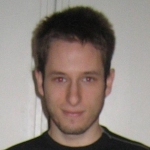 |
My current work as a PhD-student at CERN consists of investigations
concerning the usage of modern software tools for determining the spatial
dose distribution in patients subject to radiotherapy with ion beams. In
this context I employ Monte Carlo Methods and distributed computing
techniques (particularly Grid) to achieve a high precision and fast
computations suitable to clinical applications. My work involves the
quantitative assessment of relevant physics models for low-energetic ions
(as occuring in radiothereupical applications), currently available in the
Geant4 Simulation Toolkit. Both electromagnetic and hadronic interactions
are taken into account. Possible extensions of the existing Geant4 physics
are considered to design and implement new or improved models. An important
part of my thesis is to evaluate the possibility to exploit a distributed
computing environment for achieving a precise dose calculation within a time
frame compatible with clinical applications at a hadrontherapy facility. For
this purpose I perform large-scale Geant4-based dose calculations on the
LCG. |
|
3rd Mark
2007 |
|
Andrzej NOWAK |
CERN,
Geneva - Switzerland |
|
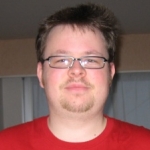 |
Andrzej Nowak has been working at CERN openlab, a
partnership between CERN and the industry (Intel, HP, Oracle), since 2007.
His early research concerned operating systems security, mobile systems
security, and wireless technologies. During his studies in 2005 and 2006,
Andrzej worked at Intel, where he researched custom performance
optimizations of the Linux kernel and took part in developing one of the
first 802.16e (WiMax Mobile) wireless MAN networking standard
implementations. Soon after obtaining his diploma, he joined openlab in
January 2007. Andrzej deals mostly with multi- and many-core architectures
and parallel processing. Another significant area of his work is platform
optimization and performance assessment. |
|
3rd Mark
2007 |
|
Karol WAWRZYNIAK |
University of Warsaw - Poland |
|
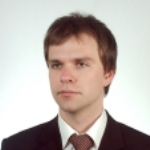 |
Two of my
current main activities are as follows: 1) Administrator at EGEE project
responsible for network issues, security and monitoring of Warsaw EGEE
Cluster. Employed by Interdisciplinary Center for Mathematical and
Computational Modelling, University of Warsaw. 2) Ph.D. student in
Polish-German PhD studies running in ICM Warsaw University in cooperation
with the Graduate College at the IWR, University of Heidelberg. Research
area: Multi-agent games: Evolution, Thermodynamics and Applications
Supervisor: Dr. hab. W. Wi?slicki Department: Interdisciplinary Center for
Mathematical and Computational Modelling University: Warsaw University,
Warsaw, Poland. |
|
|
|
|
|
